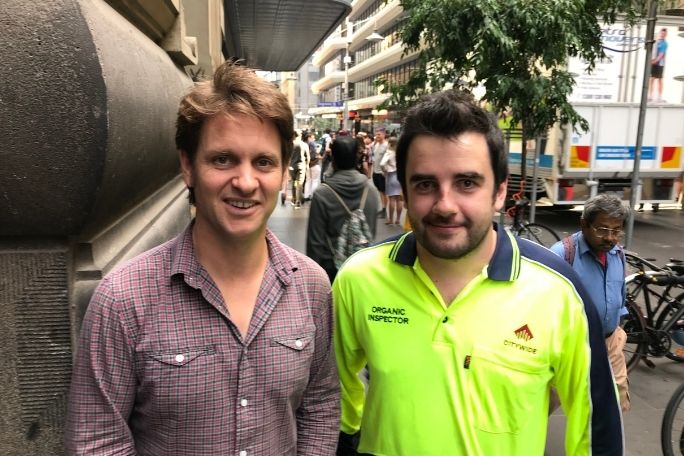Lesson summary
Students explore the concept of a circular economy as a way of addressing the waste crisis. They begin by reviewing their understanding of waste and think about who is responsible for dealing with waste: governments, producers or consumers? They are then introduced to the National Waste Policy 2018 and the concept of a circular model of the economy. They then examine the National Waste Policy 2018, focusing on the five principles identified in the document for addressing waste management, recycling and resource recovery in a circular economy. Students use these principles to analyse companies which claim to operate within a circular economic model and share their findings with the class.
Learning intentions:
Students will...
- recognise the impacts of waste on our environment
- become familiar with the National Waste Policy 2018
- understand what a circular economy model is and how it compares with a linear model
- understand how a circular economy model could help to reduce the impact of waste on our environment.
Success Criteria:
Students can...
- navigate, read and analyse a policy document
- use criteria to assess business practices
- work independently and collaboratively.
Lesson guides and printables
Lesson details
Curriculum mapping
Australian curriculum content descriptions:
Year 8 Economics and Business:
- The ways markets in Australia operate to enable the distribution of resources, and why they may be influenced by government (ACHEK027)
- Gather relevant data and information from a range of digital, online and print sources (ACHES033)
- Apply economics and business knowledge, skills and concepts in familiar and new situations (ACHES036)
- Present evidence-based conclusions using economics and business language and concepts in a range of appropriate formats, and reflect on the consequences of alternative actions (ACHES037)
Year 9 Economics and Business:
- The nature of innovation and how and why businesses seek to create and maintain a competitive advantage in the market, including the global market (ACHEK041)
- The changing roles and responsibilities of participants in the Australian or global workplace (ACHEK042)
- Gather relevant and reliable data and information from a range of digital, online and print sources (ACHES044)
- Apply economics and business knowledge, skills and concepts in familiar, new and hypothetical situations (ACHES047)
- Present reasoned arguments and evidence-based conclusions in a range of appropriate formats using economics and business conventions, language and concepts (ACHES048)
Year 10 Economics and Business:
- Factors that influence major consumer and financial decisions and the short- and long-term consequences of these decisions (ACHEK053)
- Gather relevant and reliable data and information from a range of digital, online and print sources (ACHES056)
- Apply economics and business knowledge, skills and concepts in familiar, new and hypothetical situations (ACHES059)
- Present reasoned arguments and evidence-based conclusions in a range of appropriate formats using economics and business conventions, language and concepts (ACHES060)
Syllabus outcomes: C4.1, C4.2, C4.3, C4.4, C4.7, C4.8, C5.1, C5.2, C5.3, C5.4, C5.7, C5.8
General capabilities: Literacy, Critical and Creative Thinking
Cross-curriculum priority: Sustainability OI.8
Relevant parts of Year 8 Economics and Business achievement standards: Students explain how markets operate and recognise why governments may influence the market’s operation. They explain the rights and responsibilities of consumers and businesses in terms of financial and economic decision-making. Students develop questions and gather relevant data and information from different sources to investigate an economic or business issue. They apply economics and business knowledge, skills and concepts to familiar and unfamiliar problems.
Relevant parts of Year 9 Economics and Business achievement standards: Students analyse the roles and responsibilities of participants in the workplace. They gather and analyse relevant data and information from different sources to answer questions, identify trends and explain relationships. They apply economics and business knowledge, skills and concepts to familiar, unfamiliar and hypothetical problems.
Relevant parts of Year 10 Economics and Business achievement standards: Students analyse factors that influence major consumer and financial decisions and explain the short- and long-term effects of these decisions. They gather and analyse reliable data and information from different sources to identify trends, explain relationships and make predictions, and apply economics and business knowledge, skills and concepts to familiar, unfamiliar and complex hypothetical problems.
This lesson is part of the wider unit of work: War On Waste – Years 7-10
Time required: 60 mins
Level of teacher scaffolding: Medium – facilitate class discussions, lead students in activities
Resources required
- Circular Linear Economy Image (optional)
- Device capable of presenting an online clip to the class
- Student Worksheets – one copy per student
- National Waste Policy 2018
Skills
This lesson is designed to build students’ competencies in the following skills:
- Collaboration
- Communication
- Critical thinking
Additional info
Cool Australia’s War On Waste lessons have been developed in partnership with Lune Media and with support from the Australian Environmental Grantmakers Network. These lessons have been designed to lead students through a deeper understanding of some of the big issues relating to waste in Australia and to support them to take action to reduce the impact of waste on our environment.


Welcome back!
Don't have an account yet?
Log in with:
By signing up to Cool.org you consent and agree to Cool's privacy policy to
store, manage and process your personal information. To read more, please see
our privacy policy here(Opens in new tab).
Create your free Cool.org account.
Many of our resources are free, with an option to upgrade to Cool+ for premium content.
Already have an account?
Sign up with:
By signing up to Cool.org you consent and agree to Cool's privacy policy to
store, manage and process your personal information. To read more, please see
our privacy policy here(Opens in new tab).